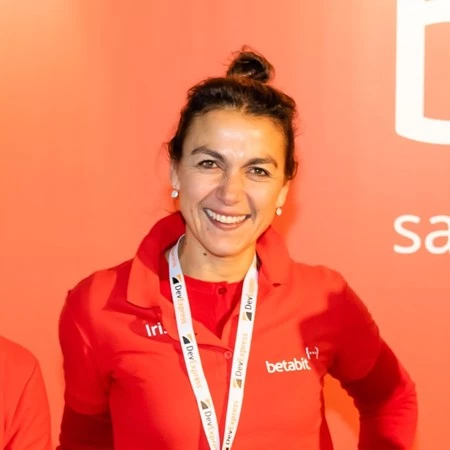‘Autonomous microservices never share data’ & ‘How to deal with eventual consistency?’
Twice, on Wednesday, 16 and 23 October, Betabit organised an expert session on autonomous microservices and eventual consistency.

On both days in 2019 Betabit organised a knowledge session in collaboration with Blaak Selection and the speaker was Dennis van der Stelt. This time the evening consisted of two different sessions. The first was ‘Autonomous microservices never share data’ and the second ‘How to deal with eventual consistency?’
Two fantastic evenings.
Evenings that took on extra lustre for Betabit because they were the first knowledge sessions in our completely renovated offices. Such a pleasure. Also during the enjoyable drinks that followed. At 11 pm we really had to send the last attendees home.
Session 1 - 45 minutes
How to deal with eventual consistency?
As software architects, we want our systems to be performant and maintainable. We use infrastructures like Azure Service Bus or Service Fabric. We may introduce patterns such as CQRS and Event Sourcing. Many of these decisions introduce eventual consistency, despite users wanting immediate consistency. They don’t want to wait for ‘eventually’ and would rather have immediate feedback from the system.
However, there are ways to work with this. What exactly is eventual consistency and how can we make it work for us? In this session, we looked at ways, both in the user interface and in the back-end, to provide immediate feedback to end-users, even though the back-end is not yet fully updated, which still allows us to run our system reliably and perform well.
Session 2 – 50 to 60 minutes
Autonomous microservices never share data
Are you also building a monolith of microservices? If a small change in business logic means a change in multiple services, probably you agree. Isn’t it amazing that the latest technologies like .NET Core, containers, and serverless don’t actually help? In this session, we discussed why technology doesn't help solve ‘high coupling’ in your system. We look at microservices in a different way, one where they really operate autonomously and never have to share data.
1 evening, 2 sessions


